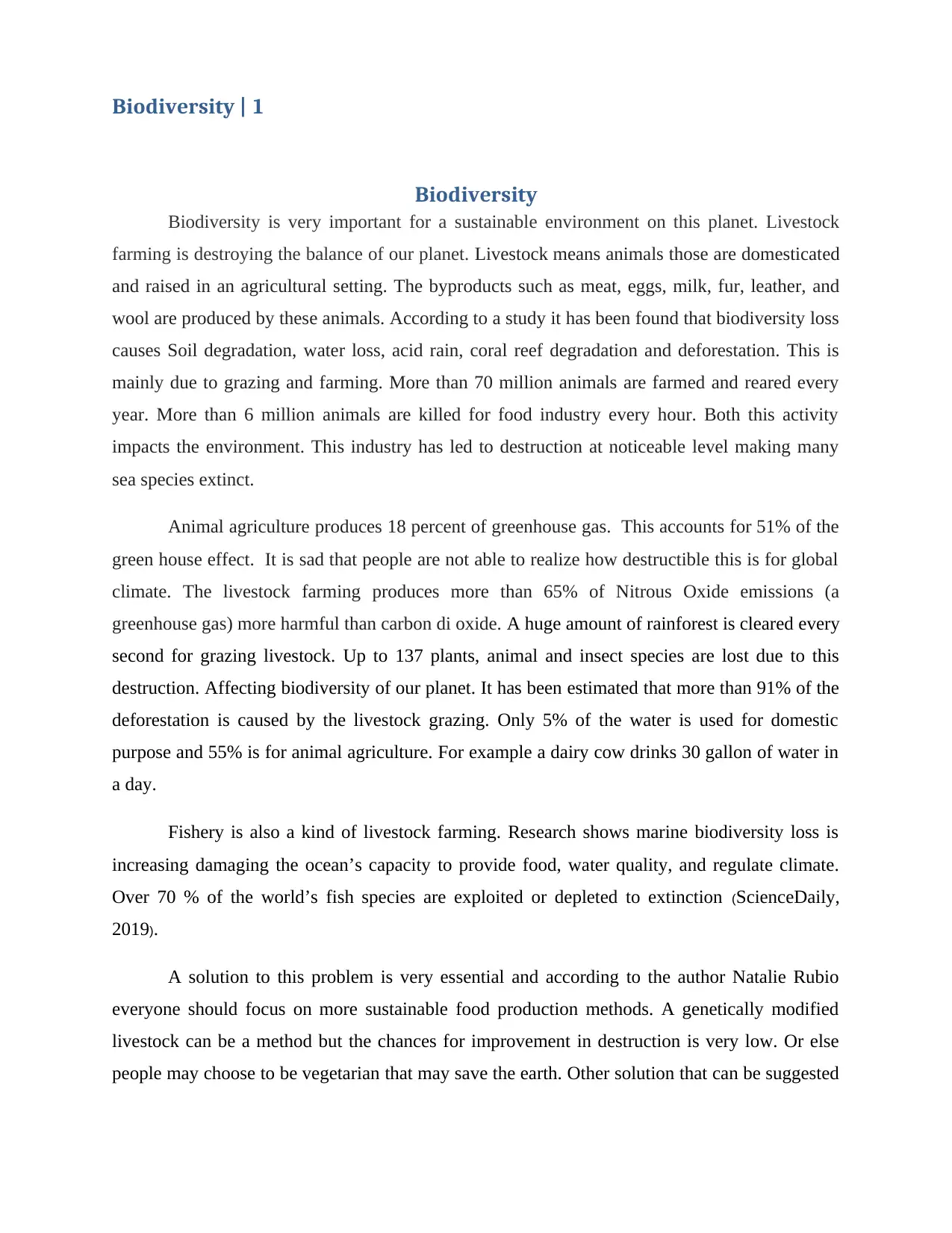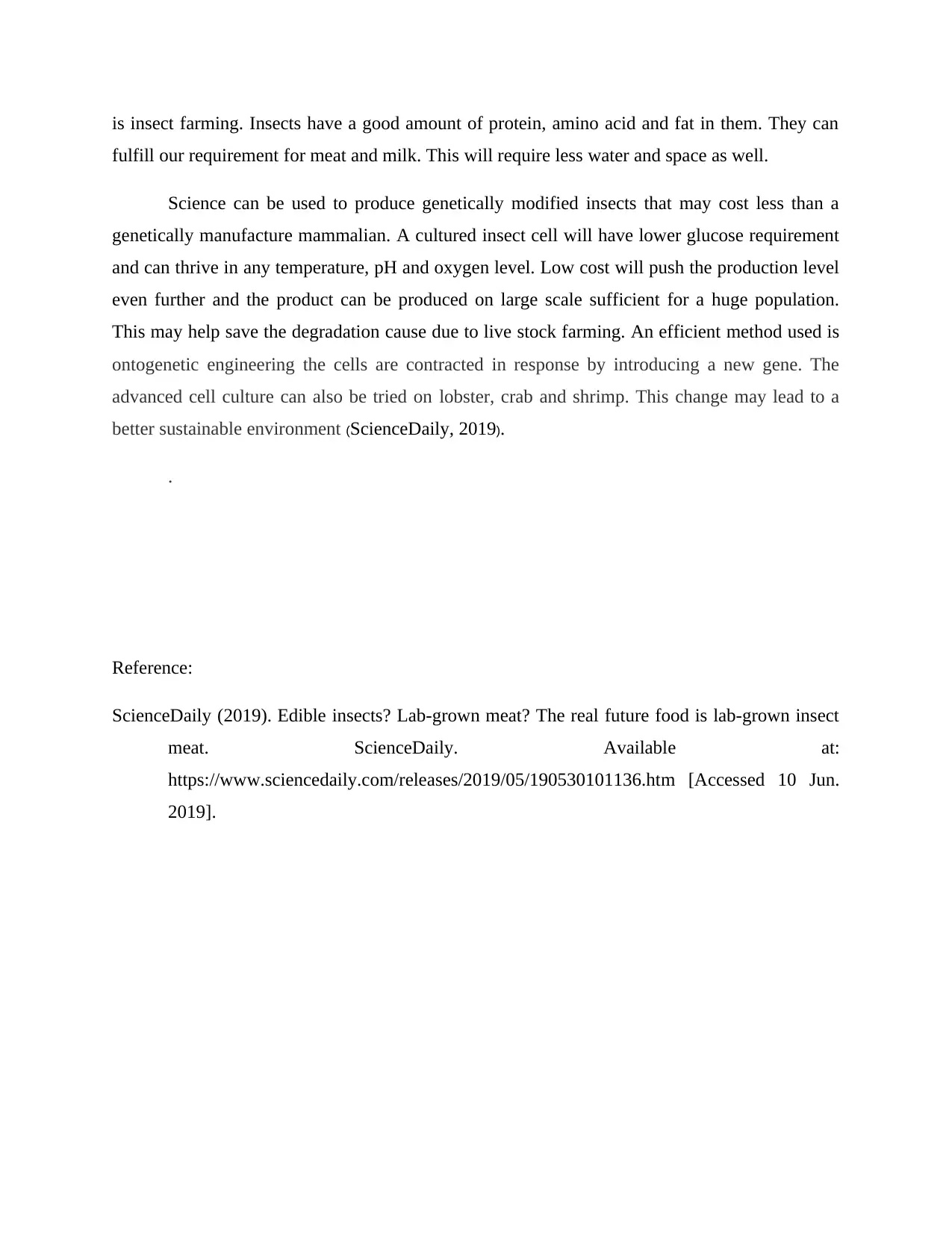Analysis of Biodiversity Loss Due to Livestock Farming
VerifiedAdded on 2022/12/29
|2
|616
|52
Report
AI Summary
This report investigates the significant impact of livestock farming on biodiversity, highlighting the detrimental effects on the environment. The report details how livestock farming leads to deforestation, soil degradation, water loss, and increased greenhouse gas emissions, contributing to climate change and harming marine ecosystems. It explores the scale of the problem, citing statistics on animal farming and the resulting environmental damage. The report then proposes potential solutions, including sustainable food production methods, genetically modified livestock, vegetarianism, and insect farming. It emphasizes the importance of finding alternatives to traditional livestock farming to mitigate the negative effects and promote a more sustainable environment. The report also suggests the use of advanced cell culture techniques, such as ontogenetic engineering, to produce meat and milk alternatives. The report concludes by emphasizing the need for immediate action and a shift towards sustainable practices to preserve biodiversity and protect the planet.
1 out of 2








![[object Object]](/_next/static/media/star-bottom.7253800d.svg)